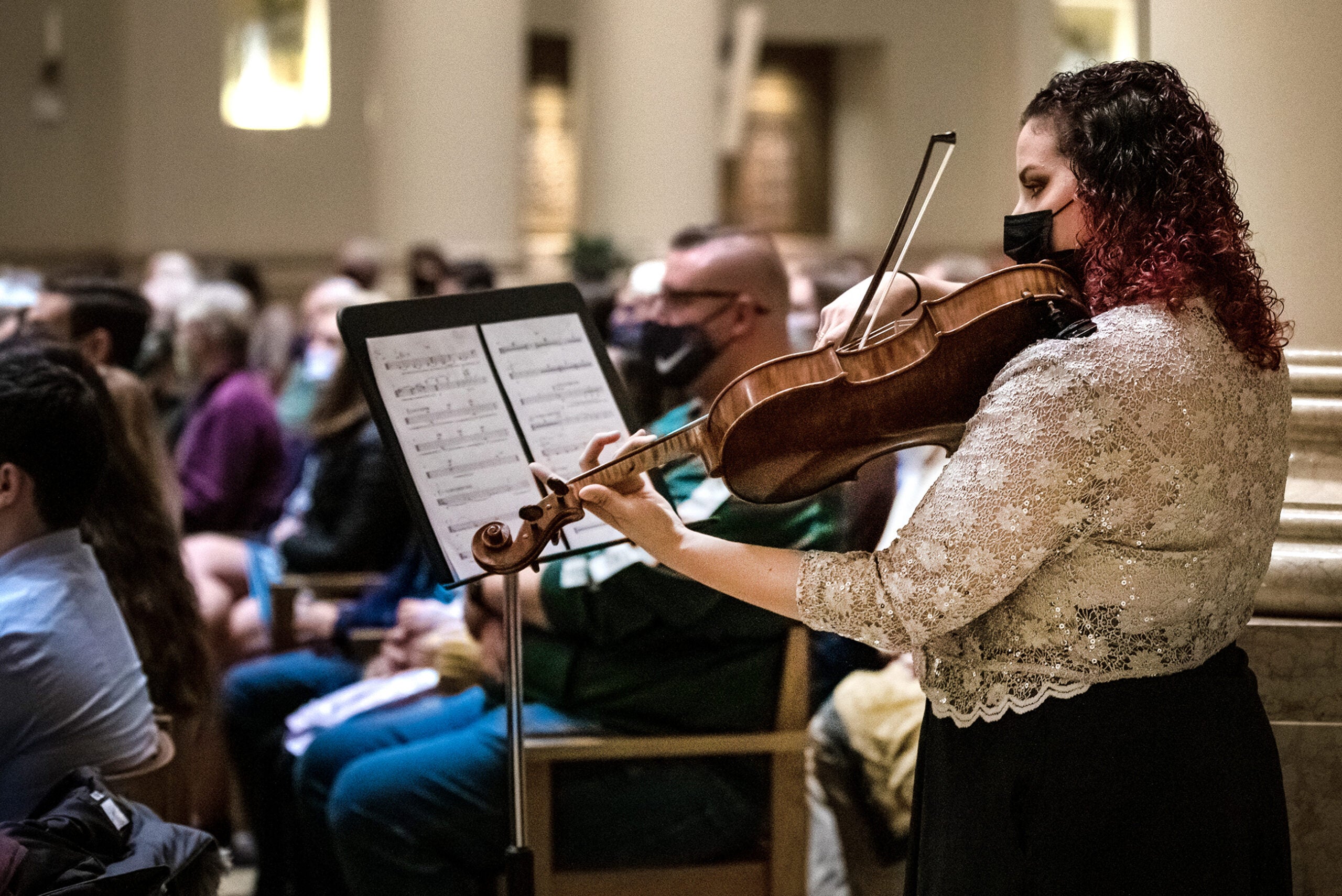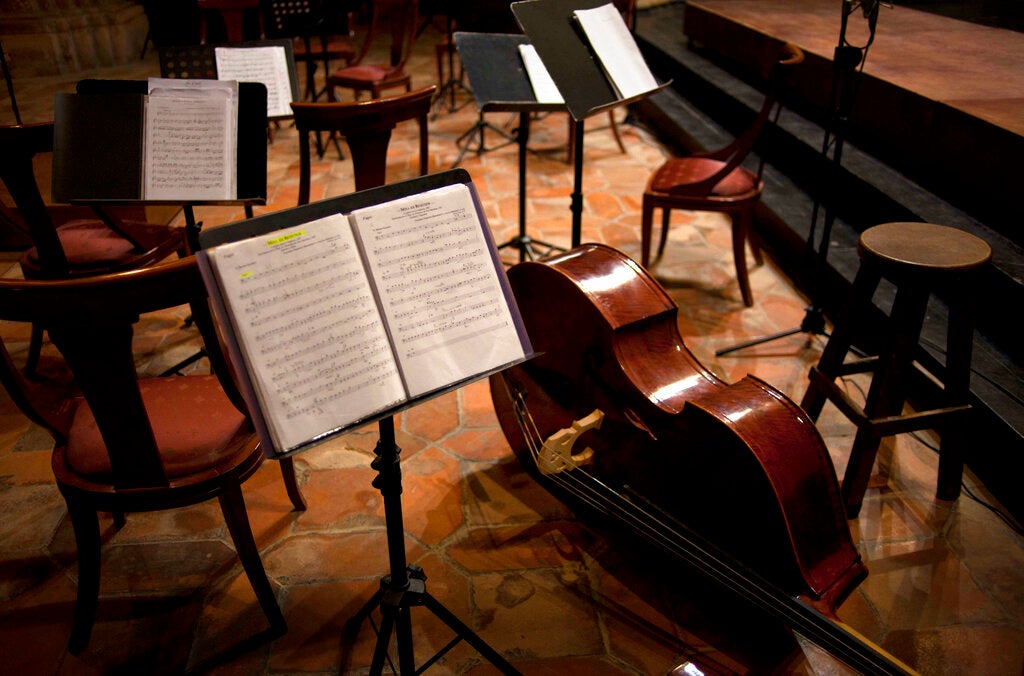Inside the nearly 175-year-old Cathedral of St. John the Evangelist in Milwaukee, the church’s Nichols & Simpson organ towers over the holy space and ensemble below.
What is true of the organ’s imposing stature can be said too for the weight of sound bellowing from its pipes. It can bury other instruments.
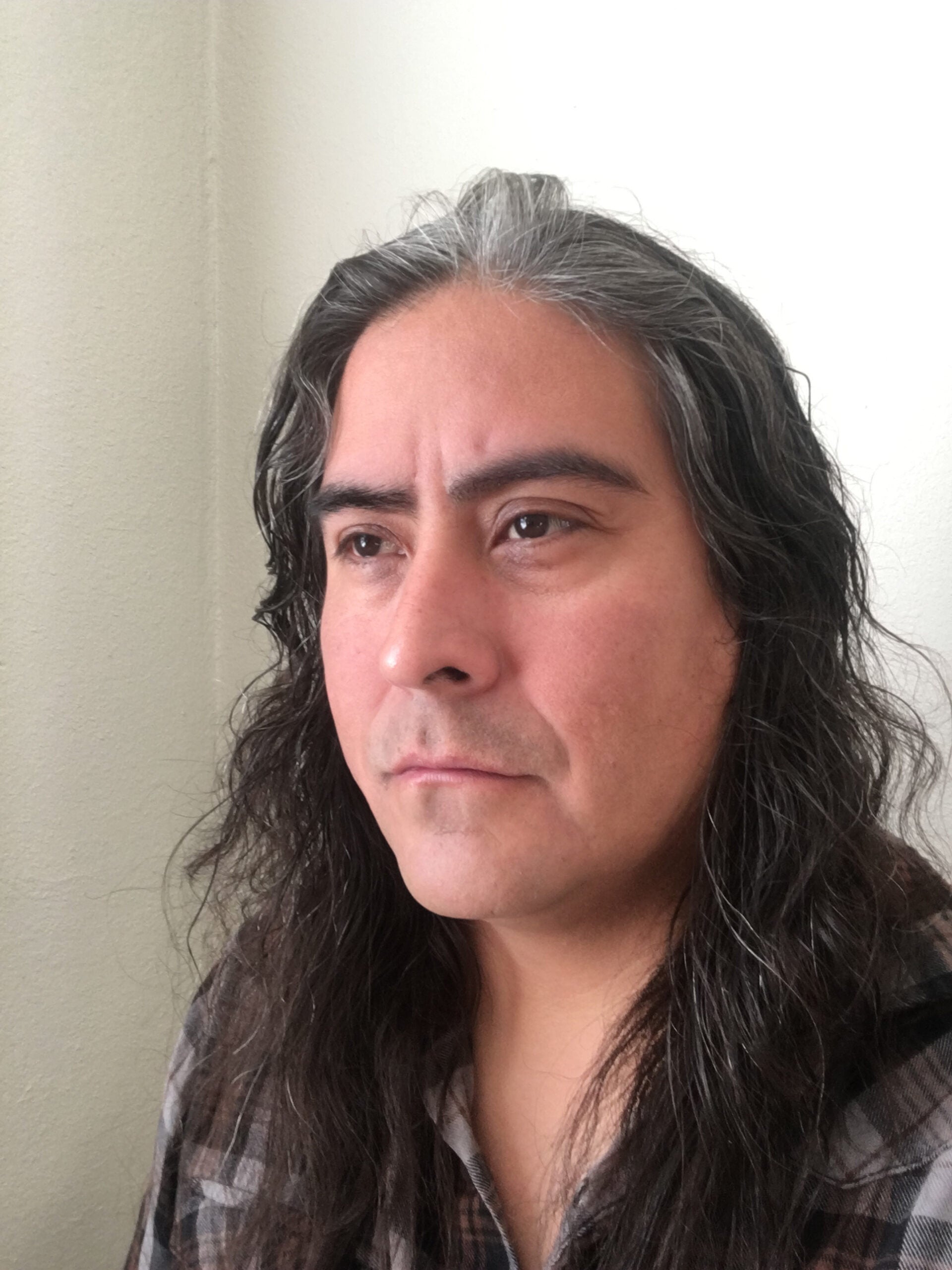
News with a little more humanity
WPR’s “Wisconsin Today” newsletter keeps you connected to the state you love without feeling overwhelmed. No paywall. No agenda. No corporate filter.
That’s why Raven Chacon, a composer based in Albuquerque, New Mexico, scattered his ensemble throughout the cathedral — including among the audience — during Present Music’s annual Thanksgiving concert last year. He redistributed the sounds to change what the audience could hear.
“So, you have the viola in this instance being probably the quietest instrument in the ensemble and providing a space where that viola can have the same voice or the same power of voice as, let’s say, the organ,” he said recently on WPR’s “Central Time.”
Without words or lyrics, Chacon’s piece, “Voiceless Mass,” told a story. It made a statement at a Thanksgiving concert inside a Catholic church.
“There is the idea that all voices have equity and have the potential to speak,” said Chacon, who is Native American. “But at the same time, there can be a lot of suppression that happens in these places.”
For “Voiceless Mass,” Chacon in May won the Pulitzer Prize in Music, becoming the first Indigenous composer to win that award. He called winning “a complete surprise and an honor that the work was recognized and that it was heard.”
Truth and reconciliation
Chacon’s connection to the Catholic church started in his upbringing. He said a lot of tribes adopted Catholicism to survive. He was born in Fort Defiance, Navajo Nation, and grew up Catholic.
He said the Catholic church has done more recently to recognize Native people and their history. For example, Pope Francis provided a formal apology April 1 after findings of abuse and death in residential schools in Canada.
“Listening to your voices, I was able to enter into and be deeply grieved by the stories of the suffering, hardship, discrimination and various forms of abuse that some of you experienced, particularly in the residential schools,” the pope said. “It is chilling to think of determined efforts to instill a sense of inferiority, to rob people of their cultural identity, to sever their roots, and to consider all the personal and social effects that this continues to entail: unresolved traumas that have become intergenerational traumas.”
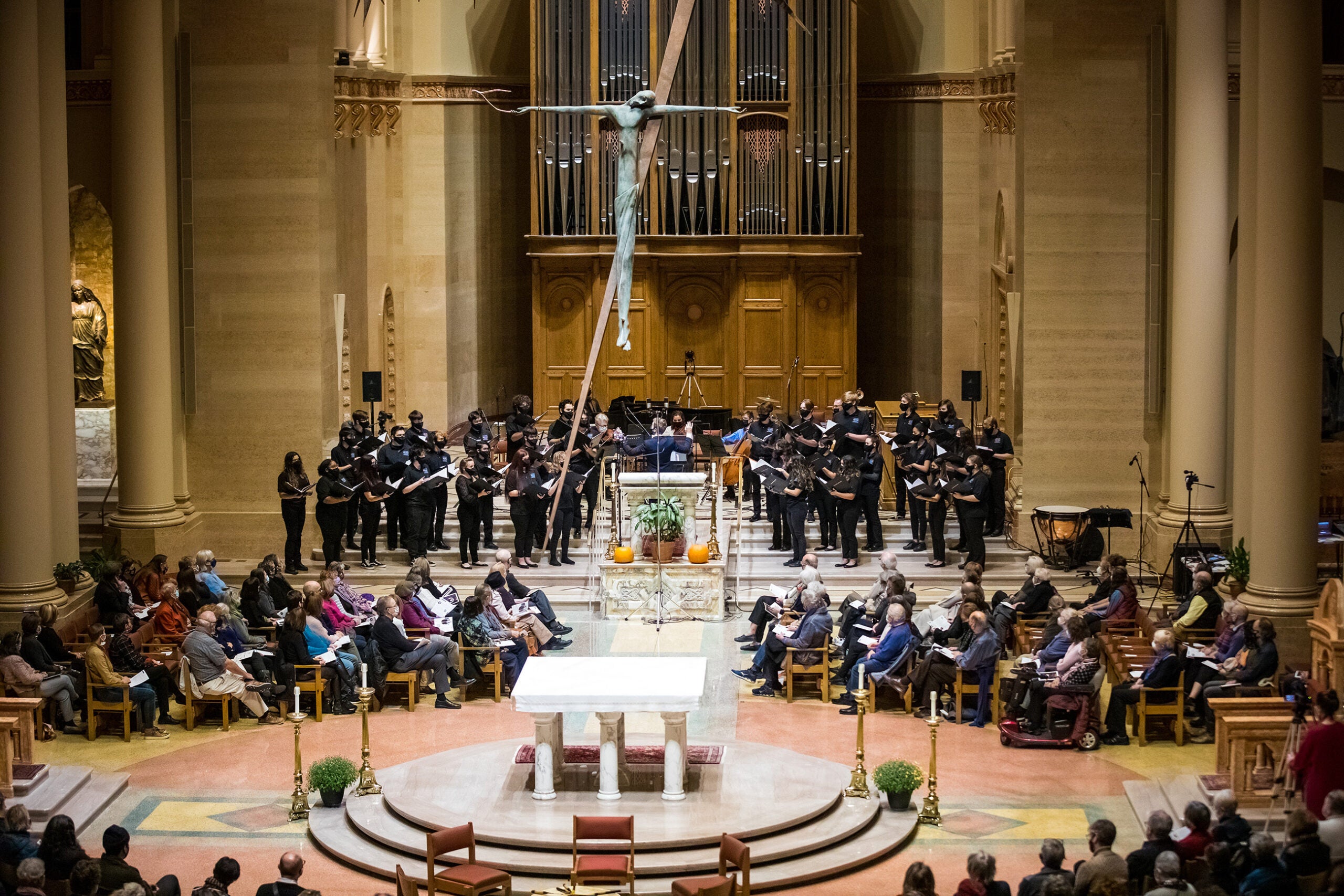
Sheila J. Feay-Shaw is an associate professor in music education at the University of Wisconsin-Milwaukee. She is also a deacon for Plymouth United Church of Christ, which commissioned Chacon’s work along with Present Music and the Wisconsin Conference of the United Church of Christ.
Feay-Shaw said her church and others are working to repudiate the Doctrine of Discovery, a concept used to justify colonization, and instead embrace truth and reconciliation with Indigenous people.
She said merely recognizing history isn’t enough. Churches today can use their resources to give more professional opportunities to the Native American community.
“For me, the whole journey and path of truth and reconciliation is trying to turn that around and find ways to use my privilege — or our privilege as a church that is primarily white in its population — to open doors and offer opportunity,” she said.
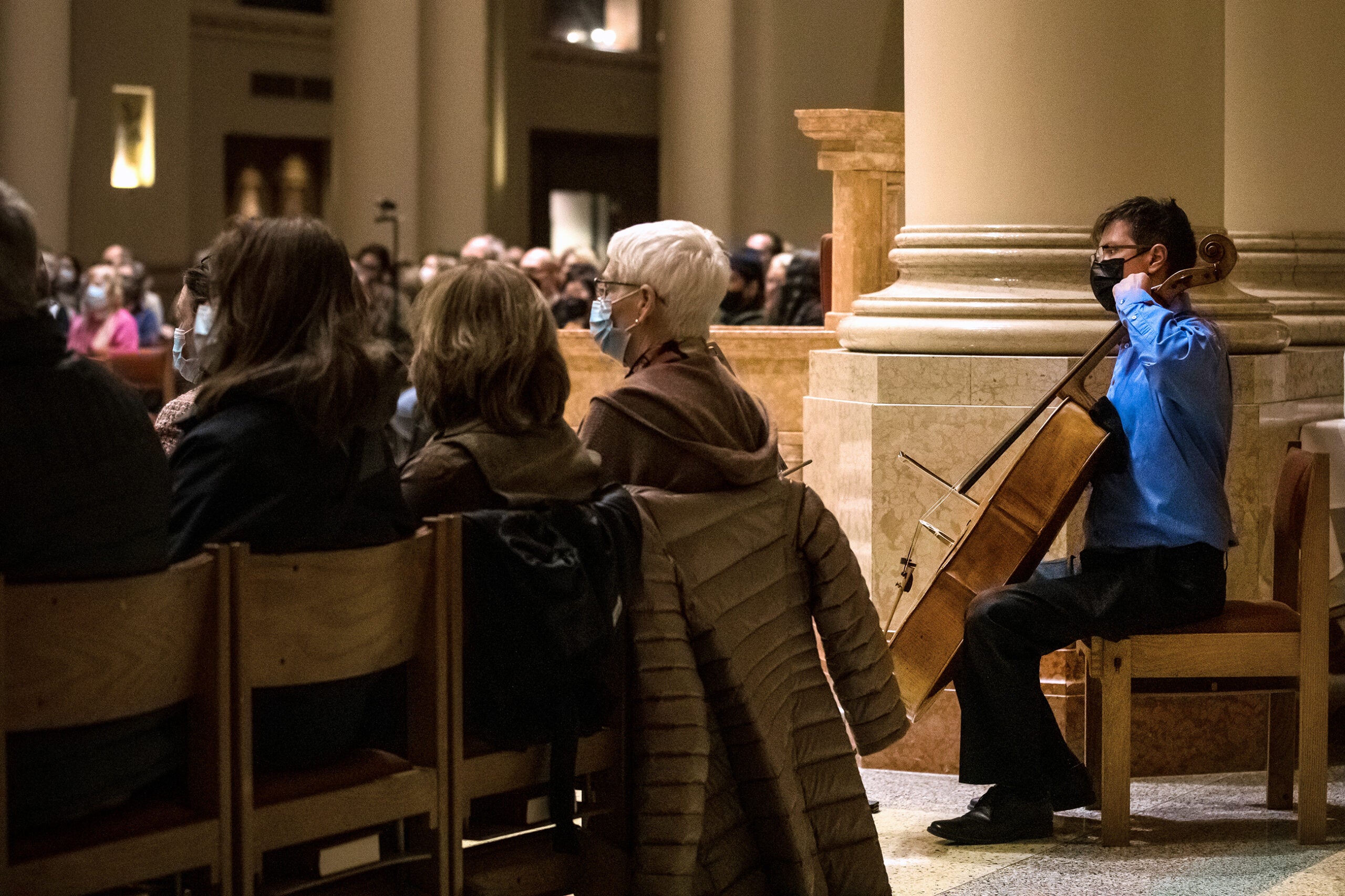
‘Conflict inside’
David Bloom, the co-artistic director and conductor for Present Music, said the organization was enamored with Chacon’s music and the ideas he puts in his art. Bloom said they essentially wrote him “fan mail” asking if they could work on a piece together.
Chacon was interested. But he initially hesitated about having a show around Thanksgiving. He said it seems like he and other Indigenous artists are asked to respond to that holiday every year. And when that’s the only time they are asked to perform, it feels like a “token gesture.”
“I think all Native people in this country have a conflict inside of them about what that anniversary means,” he said.
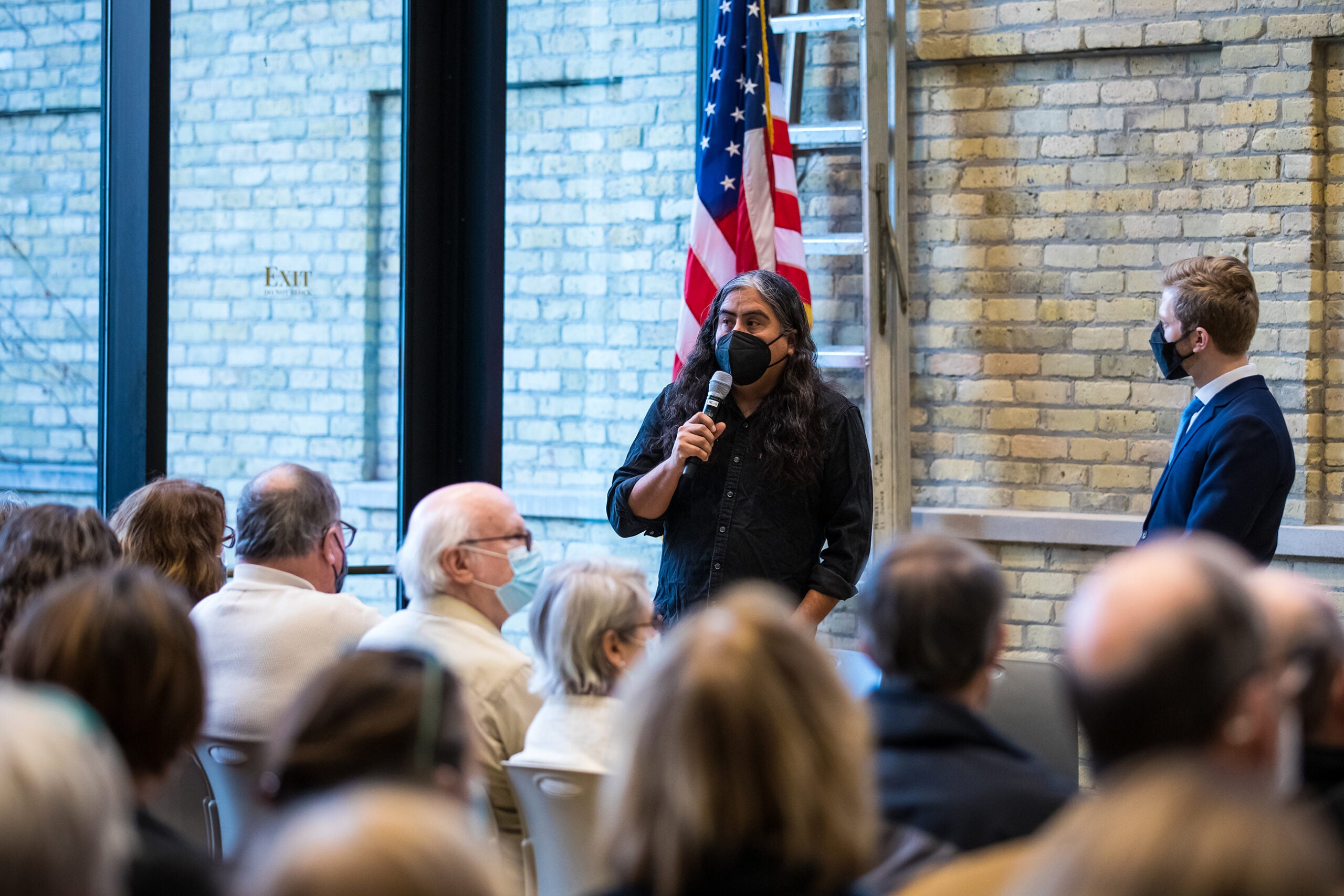
After speaking with representatives from Present Music, however, Chacon said he knew immediately they wanted to start a conversation through music. His hesitation didn’t mean he didn’t want to share. He’s happy marginalized communities are doing the speaking.
He is glad to finally be heard.
“If somebody is inviting an Indigenous artist to respond to something like Thanksgiving, they should expect the truth and expect a response that confronts the history that happened,” he said.
Wisconsin Public Radio, © Copyright 2026, Board of Regents of the University of Wisconsin System and Wisconsin Educational Communications Board.

